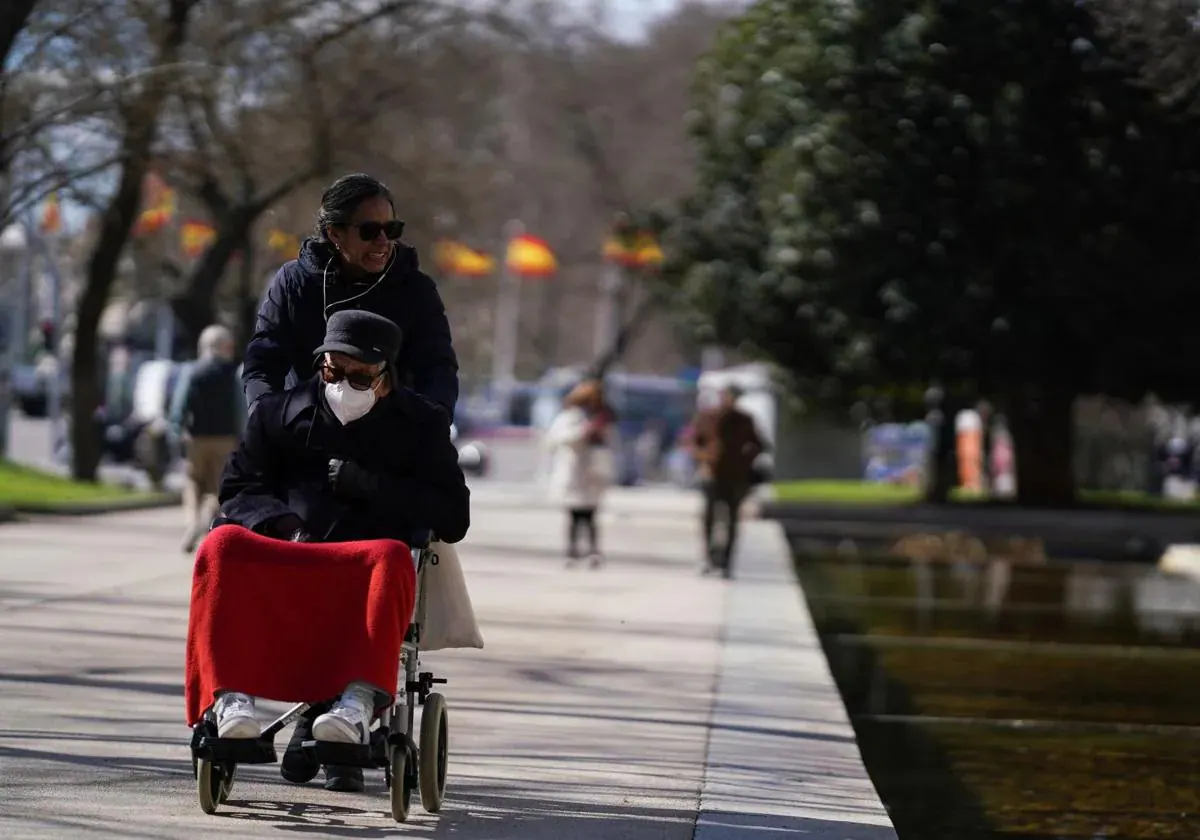Spain plans to exempt most vulnerable from paying for prostheses and wheelchairs
The scheme would cover the same six million people who have not paid for medicines since 2021: the unemployed, low-income pensioners, low-income families and children with disabilities
This autumn the Spanish government will try to reach an agreement to move forward as soon as possible with the bill that includes a series of reforms to consolidate equity and cohesion in the country's public health sytem (SNS).
If the text achieves final approval in parliament, one of the points with the greatest direct impact on citizens' lives will be the content of article three of the law. This provision will exempt more than six million Spaniards from any co-payment for the purchase of prostheses and other products and instruments needed to deal with temporary or permanent disabilities, such as wheelchairs or hearing aids.
The beneficiaries of this legal modification promoted by the Ministry of Health would be people belonging to the most vulnerable groups of Spanish society, the same ones who for three and a half years now, since 1 January 2021, have been exempt from co-payment in the purchase of medicines prescribed to them by doctors in the public health system.
Those who will be exempt from the co-payments if the law is passed are pensioners whose annual income does not exceed 5,635 euros in their annual tax return and those who do not have to pay any personal income tax or file a tax return because they have an income of less than 11,200 euros per year.
The same exemption will apply to the families of minors who are registered as having a disability of 33% or more; beneficiaries of the Minimum Vital Income or regional integration income and recipients of the non-contributory benefit for a dependent child or minor. The list of exempt persons also includes people who are unemployed without subsidy or benefit, recipients of non-contributory pensions and some very specific profiles people with other illnesses.
Co-payments
Other areas of Spanish society will not see any changes to the co-payments they currently have to pay for the purchase of medicines and orthopaedic and prosthetic products. If they are pensioners with an income of up to 18,000 euros per year, they will pay 10% (with a ceiling of 8.23 euros), if their income is between 18,000 and 100,000 euros, they will pay 10%, but with a ceiling of 18.52 euros, and if they receive more than this amount, they will pay 60%, with a ceiling of 60 euros. There are no ceilings for workers and their families. Those earning up to 18,000 euros will pay 40% of medicines or prostheses, those earning between 18,000 and 100,000 euros 50%, and those on higher incomes 60%.
The exemption of the ortho-prosthetic co-payment for the most vulnerable groups will apply to all types of external prostheses, such as those for limbs, joints, face or mouth; to orthoses, corrective structures for the spine, hands or feet; to orthopaedic footwear; to wheelchairs, walking frames, crutches or walking sticks; and to elements such as compression bandages or hearing aids, among others.
This bill, which has not yet begun its actual processing in Congreso (Spain's lower house), would come into force twenty days after its publication in the state's official bulletin (BOE) if approved.
With this legal reform, the government wants to finish dismantling the decrees on funding cuts and public services approved in 2012 by Mariano Rajoy's government, which, among other measures, extended co-payments for medicines, health transport and prosthetic products.
In fact, this bill is part of a trio of regulations being debated this year in Spain's parliament, which aims to end most of the cuts to the right to universal health care and the possibilities for private management of public health care or privatisation of services that were authorised by the Partido Popular (PP) government twelve years ago.

